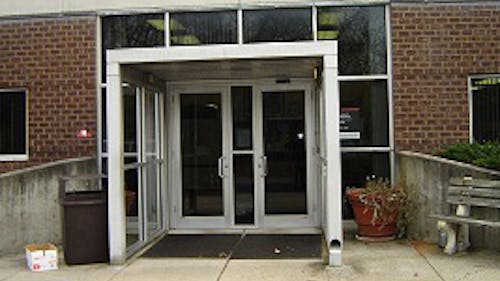Pharmacy school releases opioid toolkit to counter rising addiction rates

The Ernest Mario School of Pharmacy has released an opioid toolkit designed to address the increasing rate of opioid abuse and addiction throughout the United States.
Opioids are most commonly seen as prescription pain medications in the form of morphine and oxycodone, although heroin, one of the most dangerously addictive substances, is also classified as an opioid.
A 2015 American Society of Addiction Medicine study found that over 63 percent of total overdose deaths were related to opioid abuse. With New Jersey rated as having one of the highest opioid abuse rates, the Ernest Mario School of Pharmacy partnered with a local organization to combat the growing trend.
Community in Crisis, an organization located in Somerset County, aims to destigmatize the topic of addiction and educate the public on proper treatment and prevention of overdose deaths, according to the website.
The group expressed interest in creating a toolkit to better equip them. In January of 2016, pharmacy students began designing the kit, said Saira Jan, an Ernest Mario School of Pharmacy clinical professor and leading developer. Most of the toolkit’s technical contributors are students, faculty and professional staff at Rutgers, while Community in Crisis oversees necessary characteristics of the toolkit.
The toolkit is a free, online accessible resource that is partitioned into seven sections which provide information and instruction on approaching the opioid abuse trend, she said.
“The toolkit is a comprehensive, turnkey document, that encompasses all of the materials and information that would be necessary for organizations within communities to begin initiatives locally to increase awareness, help prevent opioid addiction and provide treatment,” Jan said via email.
Additional resources come in the form of presentations and posters, providing information ranging from the course of action in the case of overdose to old opioid advertisements, she said. Much like how studies are continuously releasing new information, the toolkit is an ever-expanding resource that is consistently being updated.
From its inception, the toolkit’s aim was to serve as a national asset than just a local one. The practices and information administered are widely applicable to nationwide cases, although the toolkit is able to be customized according to the region. Any organization distributing the toolkits can include their own contact information and insignia, Jan said.
The University has a history of addressing health crises through multiple programs on campus. Initiatives such as Alcohol and Other Drug Assistance Program (ADAP) and Specialized Addiction Treatment Services (SATS) offer counseling and education within the Rutgers community. What makes the opioid toolkit so distinct is its overarching demographic.
“The toolkit, developed by students from the terrific Ernest Mario School of Pharmacy, is really intended to be a resource for the country, for community outreach, including outreach at schools, health fairs, churches, etc.,” said Chancellor of Biomedical and Health Sciences Brian Strom, via email.
Although it was recently launched, the toolkit has already seen national exposure. They have been allocated to various universities within the state, as well as health facilities in New York, Ohio, Utah, and California, Jan said.
Organizations, such as the Academy of Managed Care Pharmacy and American Society of Health-System Pharmacists, have also embraced the kit and will be presenting it at their national meeting.
The development of the latest kit required no monetary expenses. All the contents stemmed either from partners’ resources or from medical discourses available at the university, she said.
An integral step from obtaining the information was manipulating it to be simple and easily accessible for the community. In the future, finances would be directed toward advertisements, posters and banners to further familiarize the public with opioid addiction, Jan said.
Going forward, Rutgers Pharmacy and its collaborators are looking to acquire financial support to extend its social presence, Jan said.
“Drug addiction is a public health crisis. It is affecting young and adult, rich and poor. It’s important that people be educated about this issue as much as possible, and that community organizations and schools understand what resources are readily available," Jan said. "The understanding of how drugs and alcohol affect the brain development is critical to address this issue. We have to understand what is contributing to addiction and address this issue holistically. The key thing is multi-stakeholder involvement and engagement and support for families that are affected by it."
Kelly Kim is a School of Engineering first-year student. She is a contributing writer for The Daily Targum



